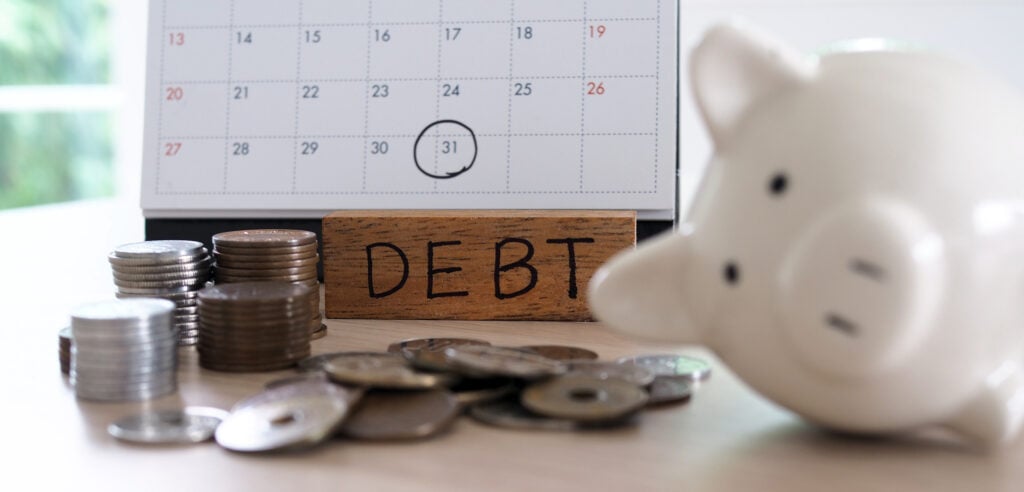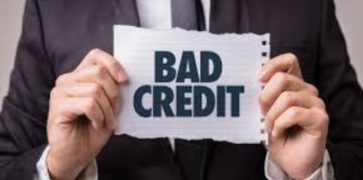
Dealing with debts is already hard enough when you have a lot of income! Living debt-free is a dream many of us want to achieve – and it is possible, by addressing you your finances and taking a firmer grip on your money.
Even if you’re on a tight budget, there are ways that can help you to reduce your debts. Check out our best ways of dealing with your debt today and let’s get you one step closer to financial freedom.
1. Explore your Financial Situation
This is the first step you need to take to start addressing your debt. It’s a step that fills a lot of people with dread and anxiety, but once you’re done, it will feel like a weight has been lifted.
Reviewing your financial situation will enable you to see all your outstanding debts and monthly living expenses at face value, as you can’t see the debt that you don’t acknowledge.
You can do this by creating a simple budget on your laptop and write down all your debts, bills and living expenses. List the full amount, the interest, monthly payments, and available credit limit.
You can then create a budget that works for you. You can either use a template or one of the many budgeting tools available online. The key here is to take care of debts (including bills) and savings, once those are taken care of you can then see what’s leftover for everything else.
2. Contact Your Creditors – They Can Offer Support
Your creditors may seem unapproachable and unwilling to help – especially if you’ve ever received a letter from them! However, they are still people and do have practices in place to help anyone of their customers struggling with debt.
Your creditor may be able to temporarily reduce your interest payments, especially if you’ve fallen on financial hardship. Remember to get any information from your creditors in writing once any agreements with your creditors have been reached.

3. Could Big Expenses be Reduced?
There’s always some wiggle room when it comes to larger living costs and dealing with these expenses first can help you make a step forward in towards becoming debt-free.
You won’t be able to get rid of debt if it keeps on growing, so go over your budget and categorise all your spending to see where you could be spending too much money. For instance, do you eat out a lot or spend too much money on transport?
Some ideas to help reduce your expenditure include:
Planning your Meals
Many people find they save money by planning what ingredients to buy each week and stick to a meal plan to ensure they’re making the most of the ingredients they buy.
Cut Down on Subscriptions
Netflix, Amazon Prime, a gym membership – yes, they all add up. Decide which packages offer the most and get rid of the ones that you don’t use often or less frequently than others.
Buy Used
This is probably one of the easiest ways to save money. If you need to purchase anything, check charity shops, thrift stores, apps which can find you discounts and free products.
Improve Your Daily Habits
If you’re a coffee drinker and tend to buy a cup on the way to work each day, why not try making it at home instead and save yourself some money. The average cup of coffee costs £3 a day – which totals £780 a year (not including weekends!).
Although this would be a good start, remember that it’s not just coffee that could be skyrocketing your spending – do you buy a drink when you pay for petrol? Are social media adverts too tempting to miss out on? These are also the things you need to consider when cutting back on your spending.
4. Speak to an Expert to Help You put a Plan in Place
If you’re struggling to create a plan or figure out where to begin, you can always speak to a professional for free. There are many debt advice services that can help – but be wary of the ones that try to charge you money, you don’t need to pay for services like this.
If you’re in the UK some services which could help you regain control of your debts are:
The National Debt Helpline: Who can help you with any pressure from creditors and help you write off any unaffordable debt.
Citizens Advice: They will help you work out how much money you owe and which debts to pay back first
Step Change: Offer free debt advice and offer practical debt solutions

5. Pay Down Debt: Avalanche vs Snowball
So, there are two repayment strategies that you could choose from, which you choose depends on what works for you!
Avalanche Method
This method involves paying your debts in order of the interest rate, starting with the highest percentage of interest, and paying off your balance one at a time whilst paying the minimum payments on all other debts. This allows you to pay off your debts faster and pay less interest overall.
Snowball Method
This method provides the quick satisfaction you might need to keep you on track. It works by paying your debts off by starting with the smallest balance and working your way up to the larger debts you have. If you have debts with the same balance, it’s worth starting with the debt that has the highest balance.
6. Build a Little Side Hustle
When we talk about a side hustle, it doesn’t have to be anything complicated but there are some options you could consider and some useful apps to help boost your finances. Here are a few options which could work for you:
- Uber/Deliveroo – If you’re a driver or keen cyclist and have got a little spare time, you can sign up to be a delivery driver for a little extra cash – just 10 hours a week could get you between £80 and £100 plus tips. However please be mindful of insurance and tax which you will need to research before committing to this to avoid any unexpected costs.
- Babysitting – Tend to have free time in the evenings or on weekends? Then babysitting could be the answer (if you don’t mind looking after children!).
- Exercise Apps – Why not be paid for working out? There are various apps that reward you for being healthy in gift vouchers, cash or discount codes for healthy food, exercise classes and gym gear.
- Surveys – To see any real cash rewards, it will take time and effort, but dedicated survey consumers can easily make £200+ a year.
- Sell Your Old Stuff – This is a quick way to make some extra cash, with the help of apps like Depop, Gumtree and Shopify you can easily get rid of your unwanted clothes, furniture and electronics.
7. Separate Your Debts from Your Savings
This is something to be mindful of if you have a savings account with the same provider of your current account as they have the right to “set-off” and use your money help in a savings account to pay off debts you have with them, such as a credit card.
It’s fairly unlikely this will happen, but it’s better to move your savings to a different financial institution than run the risk of your bank taking your money for debts you might not be ready to pay off.

8. Do not be Afraid of Asking for Help Elsewhere
Food Banks
If you’re struggling, food banks can provide some much-needed relief. Generally, a parcel will contain 3 to 4 days of food. You’ll need to be referred by a professional such as a doctor, social worker, or the citizen’s advice service.
Energy Bills
The British Gas Energy Trust is open to anyone (regardless of your gas provider) and will help anyone who is struggling with gas and electricity debts. However, your provider may have a similar scheme in place which could also provide you with financial assistance.
Support if You’re on Benefits
You may be able to get some support in the form of a budgeting loan. This will only be small and will be deducted from your benefits, but this might help you with a few smaller debts and living expenses.
Tax Credits
Tax credits are state benefits that can provide you with extra money if you’re a disabled worker, on a low income or responsible for children. There are two types of tax credits to be aware of, working tax credits and child tax credits.
In order to qualify, you will need to meet a certain criteria dependant on your household income and circumstances.
Know That Your Debt Doesn’t Have to be Around Forever
It’s not an easy task to take control of your money and debts but dealing with debt should be a priority for your mental health and future.
Making and sticking to a plan involves sacrifices and dedication but if you can stick to your plan and don’t give up you will be able to take control of your finances and lose the debt holding you back from enjoying your money.
But most importantly, don’t be too hard on yourself if you slip up – just remember a bad day or week can be forgiven if you continue to take steps in the right direction to lower your overall debt.
Alternative Accounts with Suits Me®
Here at Suits Me®, we offer much more than just a basic prepaid debit card. Our accounts are personal e-money accounts that work similarly to a traditional bank account. You’ll gain access to your online account and our mobile app, where you’ll be able to manage your money on the go, 24/7.
We offer a whole variety of banking-like features including:
- The ability to set up standing orders and manage direct debits,
- Send money within the UK via a transfer, international transfers are available via a partner in the Suits Me® app,
- Gain access to our exclusive cashback reward programme where you’ll automatically get a percentage of your money back when you use your Suits Me® debit card with our retail partners.
Opening a Suits Me® account takes minutes and you’ll gain access to your online account immediately so you can start managing your money. We don’t ask for proof of address or run a credit check. We have a high acceptance rate of applicants – so if you’re looking for a suitable alternative solution apply today! Open Your Account Today





